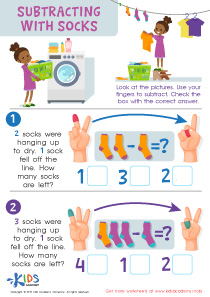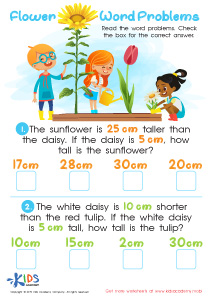Problem-Solving Skills Multiplication and Division Word Problems Worksheets for 6-Year-Olds
4 filtered results
-
From - To
Discover our engaging "Problem-Solving Skills: Multiplication and Division Word Problems Worksheets for 6-Year-Olds!" These worksheets provide young learners with the perfect blend of fun and education, designed to enhance their critical thinking and math skills. Through a variety of real-world scenarios, children practice solving multiplication and division word problems step-by-step, building confidence and competence in mathematics. Each worksheet is thoughtfully crafted to challenge and inspire, fostering a love for problem-solving. Ideal for classroom use or at-home practice, our worksheets turn learning into an exciting adventure. Nurture your child's mathematical abilities today!
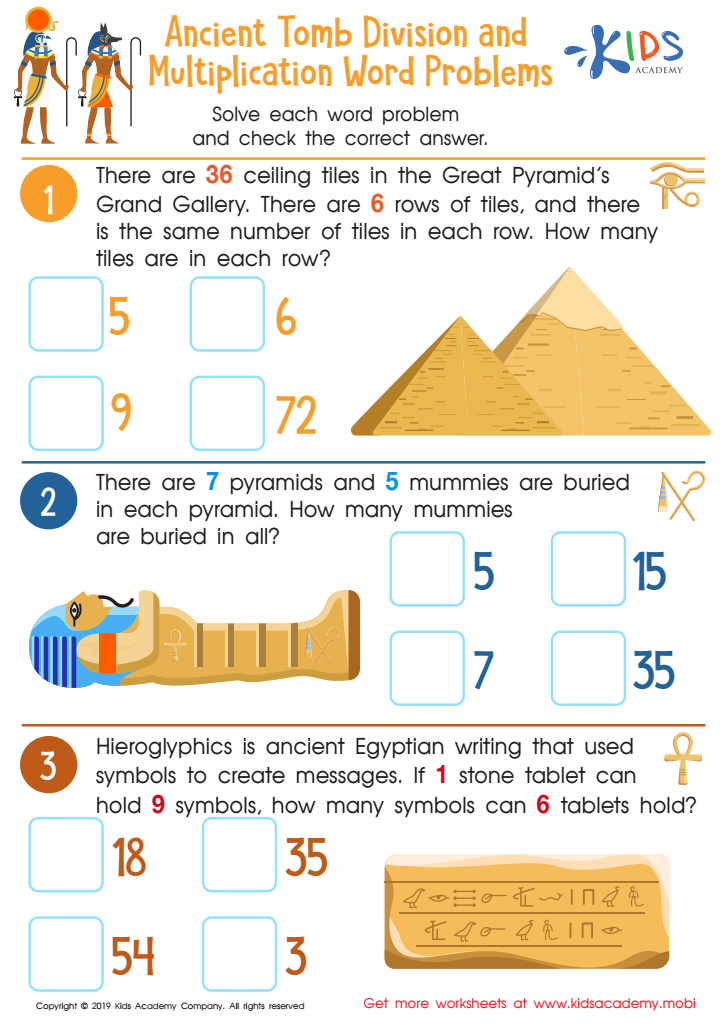

Ancient Tomb Division and Multiplication Word Problems Worksheet
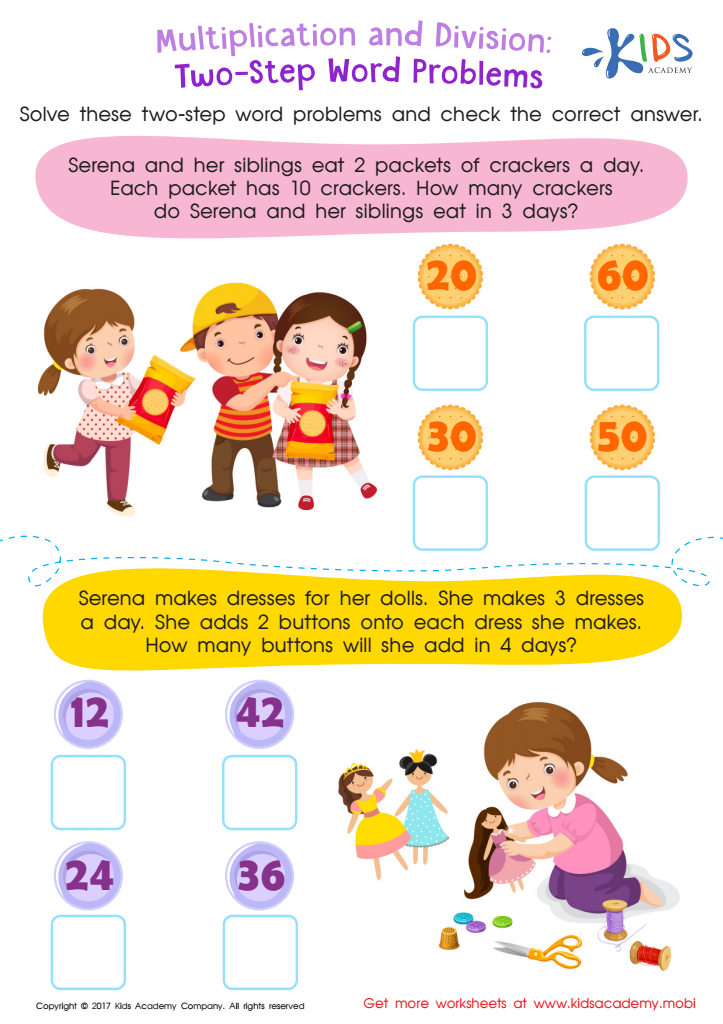

Two Step Word Problems Worksheet
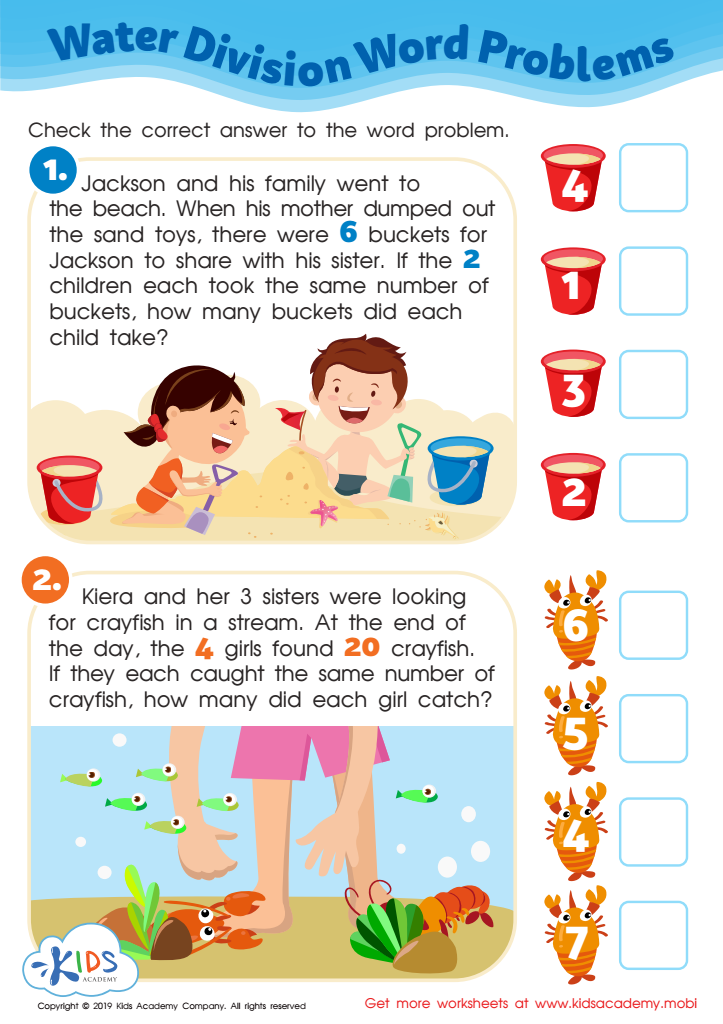

Water Division Word Problems Worksheet


Sailing to the New World Division Worksheet
Problem-solving skills involving multiplication and division word problems are essential for six-year-olds for several reasons that significantly impact their mathematical development and overall cognitive growth. Firstly, mastering these skills fosters a strong numerical foundation. When children tackle word problems, they aren't merely performing arithmetic; they are interpreting real-world scenarios, which helps them understand how math applies beyond the classroom.
Secondly, problem-solving enhances critical thinking and reasoning. Children learn to break down complex questions, discern relevant information, and apply appropriate mathematical operations. This analytical approach nurtures decision-making abilities and logical reasoning, core competencies that extend to other academic subjects and everyday situations.
Additionally, tackling word problems improves verbal and reading comprehension. Reading through a problem, understanding the scenario, and recognizing what is being asked helps develop language skills and encourages attentive reading habits.
Finally, developing these skills at a young age builds confidence in math. Feeling capable and successful in solving math problems early on can foster a positive attitude towards more advanced math topics later in their academic journey.
Therefore, parents and teachers should care about these skills to support well-rounded intellectual growth, encourage application of math in everyday life, bolster future academic success, and instill a lifelong appreciation for learning and problem-solving.
 Assign to My Students
Assign to My Students









